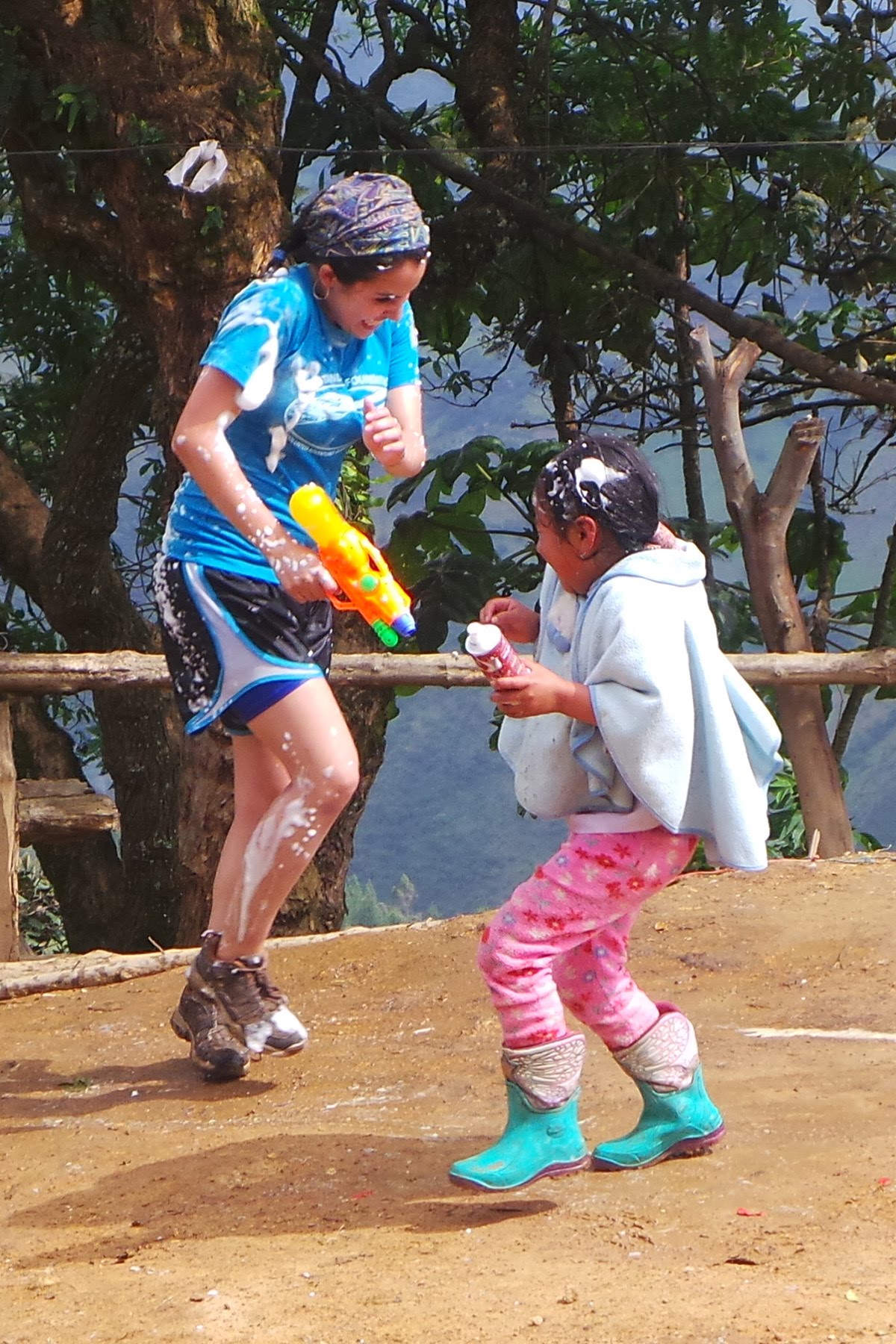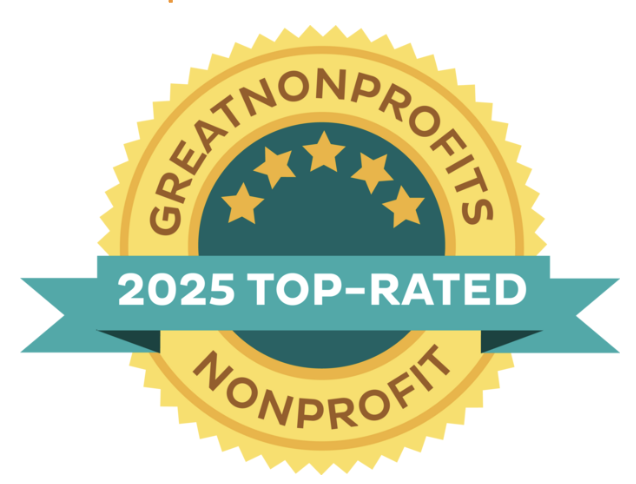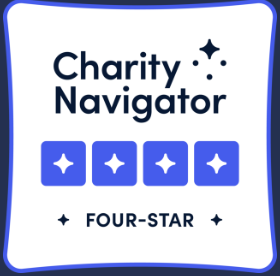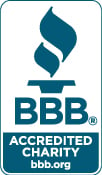
Custom Group Volunteer Programs
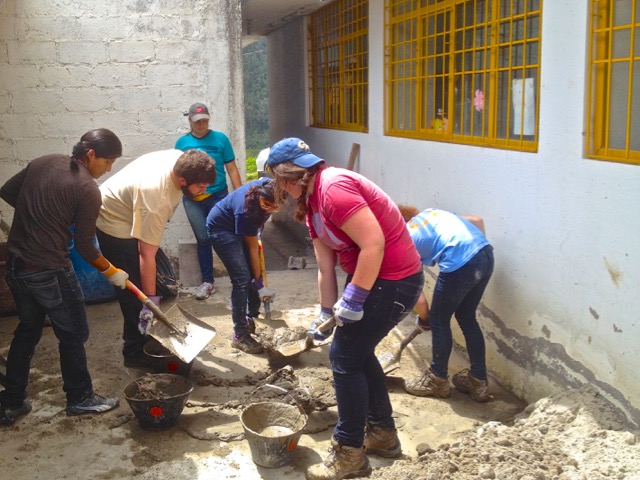
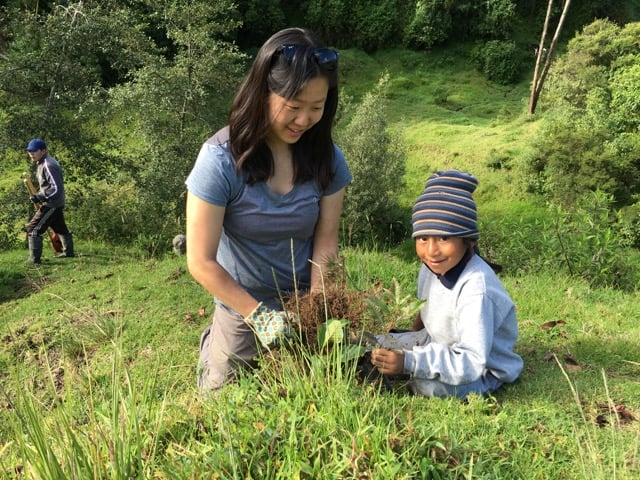
Group Volunteer Programs:
| "Thank you all so much for a fantastic week! We are so grateful for all of your work in helping us put this together and creating such an amazing, exciting, and mind-opening cultural-service experience! You really opened us up and allowed us the ability to do something that I am sure will stay with us for a long time to come. Back in Boston we all really miss the community and learning and growing with all of you as our peers and guides through this amazing journey!" -- Kayla, group leader from Massachusetts |
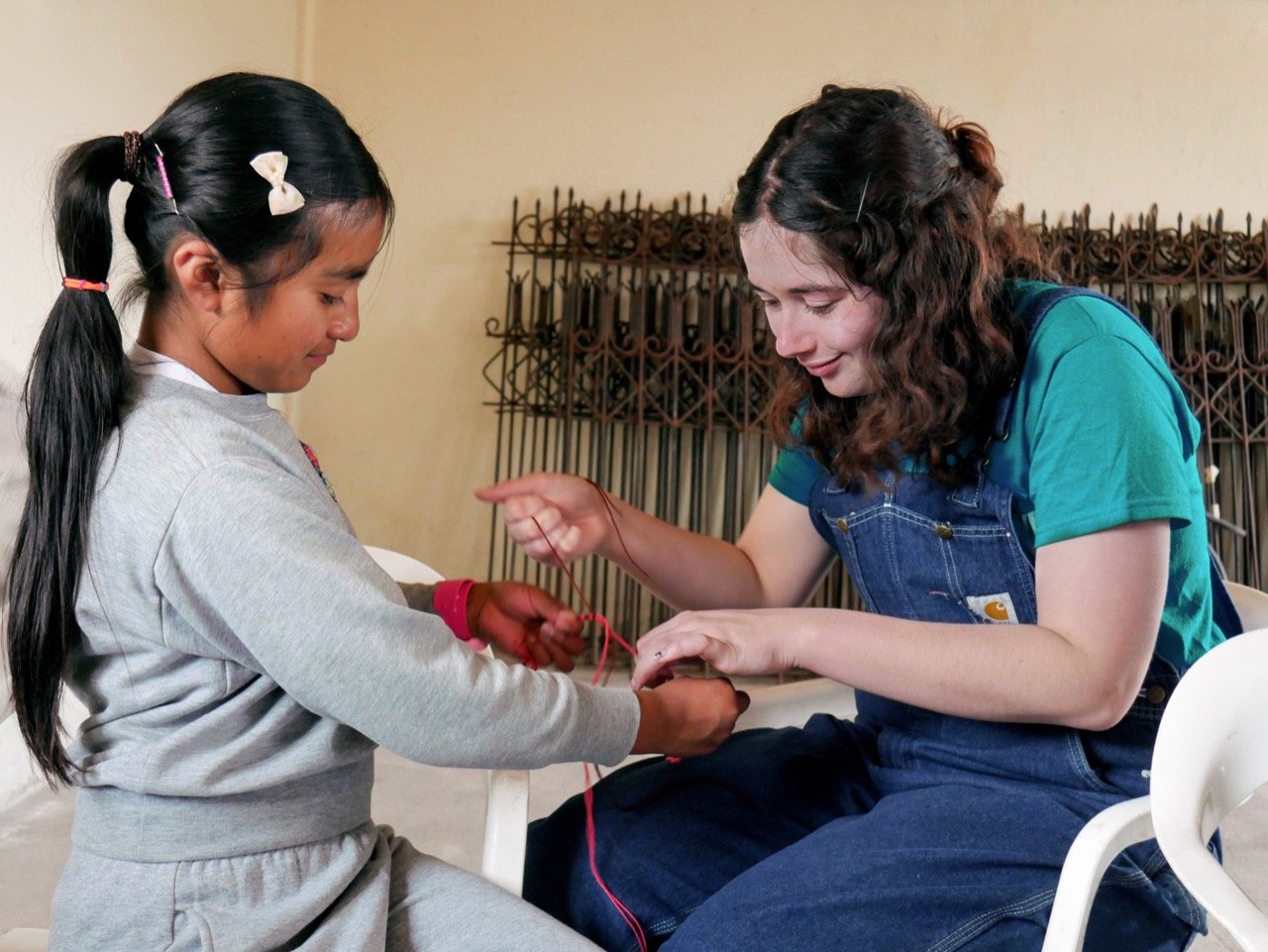
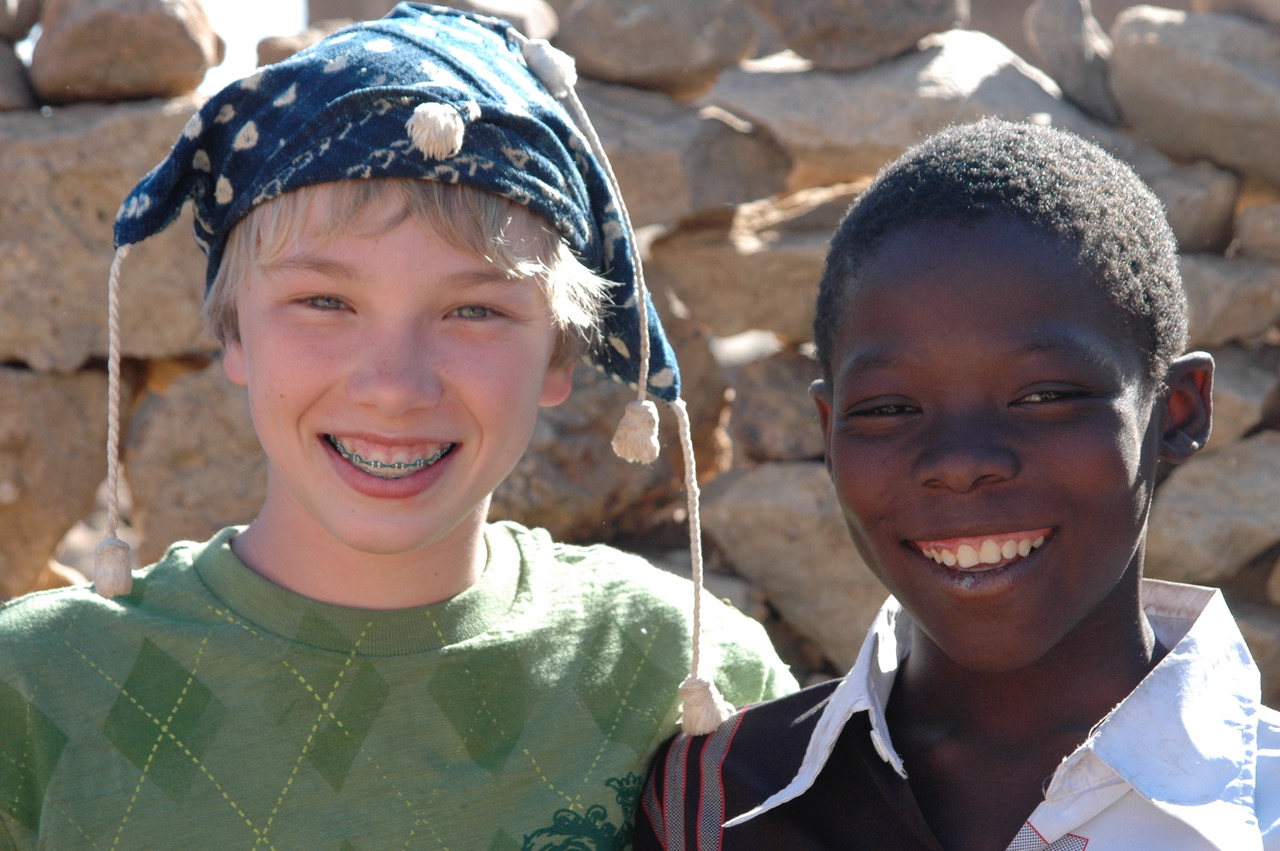
Custom Group Volunteer Programs Overview
The Tandana Foundation can offer your group a chance to make a difference in the lives of rural Ecuadorians or Malians while becoming part of the community you serve.
Whether you are a class, organization, club, set of service-oriented and adventure-seeking friends, healthcare professionals, gardeners, teachers--any group that wants a new experience and a chance to make friends by helping out--we can coordinate a service project and a unique learning experience for you. Lodging options include homestays, a community center, a hostel, or a hotel. Project types include building some kind of small infrastructure with community members, gardening and reforestation work, health care, and educational activities in partnership with local schools (see the next tab for more details). Often these can be combined.
We typically work for about half the day, and then have other types of fun in the afternoon. If you are working within one community, we often arrange activities with our friends there, such as playing soccer, baking bread, learning about local handicrafts, having a bonfire, etc. We also like to go on hikes and participate in other cultural activities, such as taking a traditional cooking class, visiting a master weaver, or exploring the Otavalango museum. Or we might schedule activities that are geared toward your particular group, such as taking gardeners to a rose plantation or a medicinal plant tour or, for students learning about Ecuador's history and politics, arranging for a variety of speakers to share their perspectives on the hacienda system. If you'd like, we can plan other educational or reflection activities that will help your group get the most out of the experience. Finally, we try to leave time to explore the famous Otavalo handicraft market so you can buy souvenirs and gifts to bring back home. There's so much to see and do--we can't wait to talk with you about the options and design a trip that's just right for you.
And of course, we'll take care of most of the logistics for you. We can give you suggestions on international flights (though you'll get those on your own), provide your group with all the pre-trip information you'll need, book your lodging, pick you up at the airport, and give you a helpful orientation once you arrive. Throughout your stay, you won't have to give a second thought to food, transportation, activities, or supplies for your service activity. We'll do what we do best so you can do yours.
Service Activities
Infrastructure
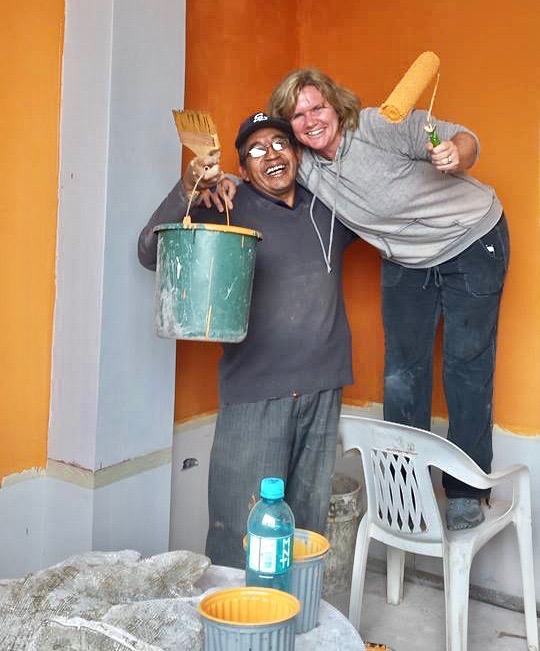
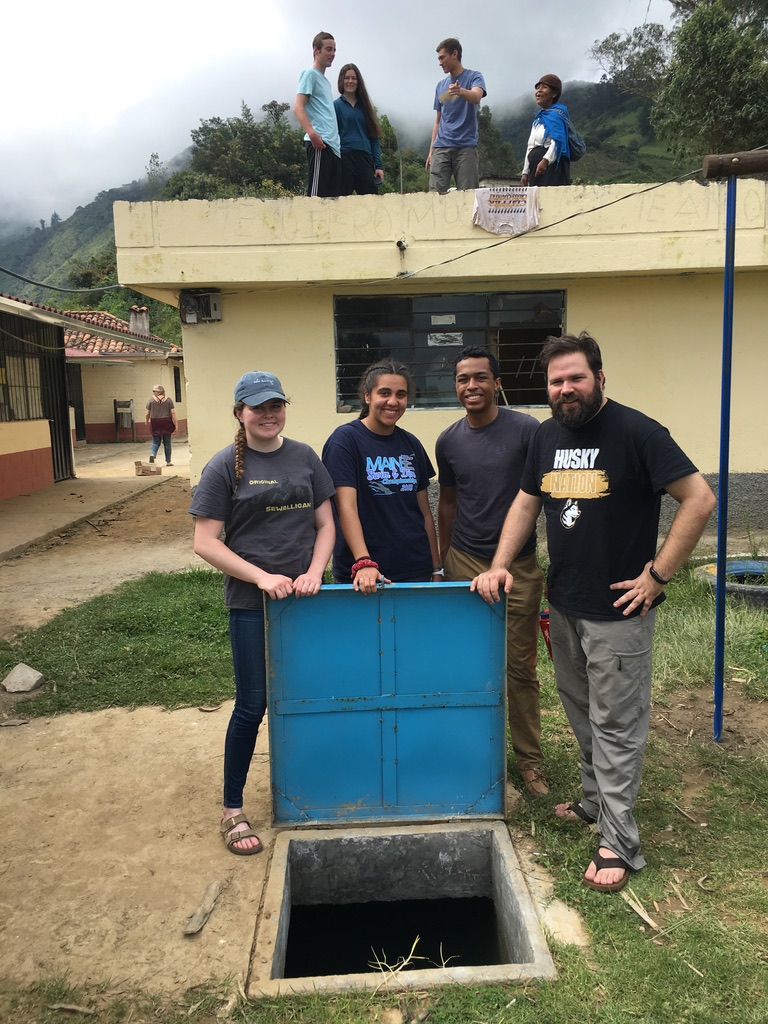
Your group can work alongside community members to build infrastructure. Some examples include a water filtration tank, a retaining wall to protect a spring, playground equipment, improvements to a community center, a bathroom, acclimatization beds for seedlings at a nursery, etc. Because the specific project depends on the community's priorities and situation at the time, it is difficult for us to tell very far in advance what the particular project will be. But we can tell you that you will have a chance to work with welcoming hosts while getting to know them and their community. Sometimes the project might be for a community as a whole, and other times for a school, daycare, or community organization.
Gardening/Environment

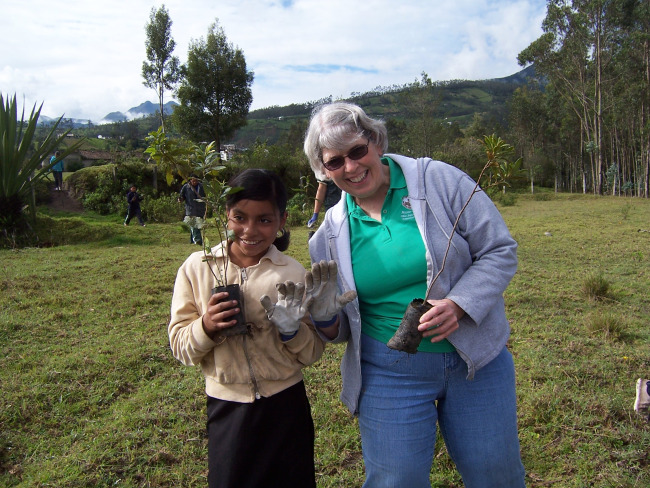
Education
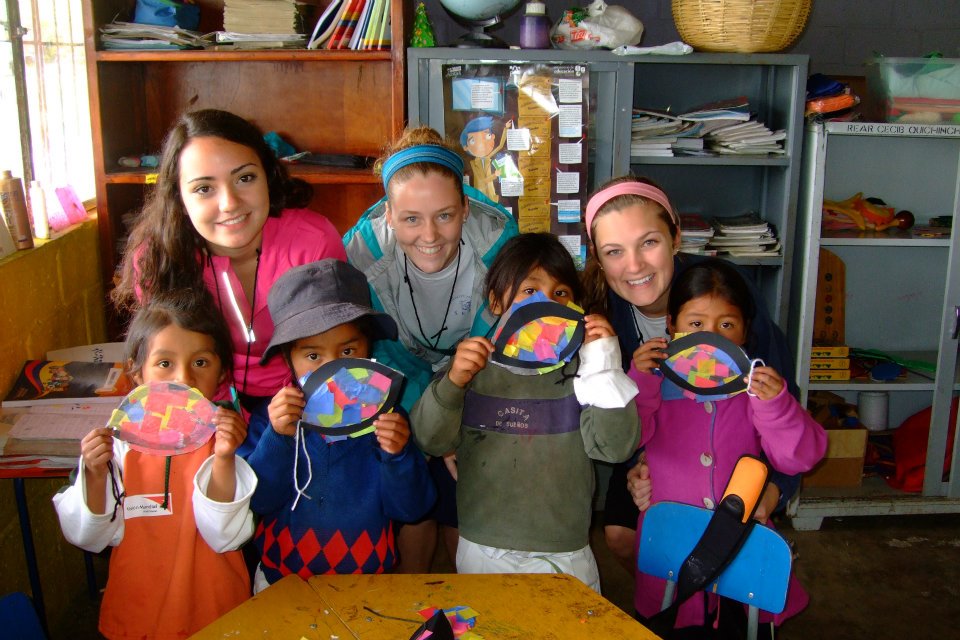
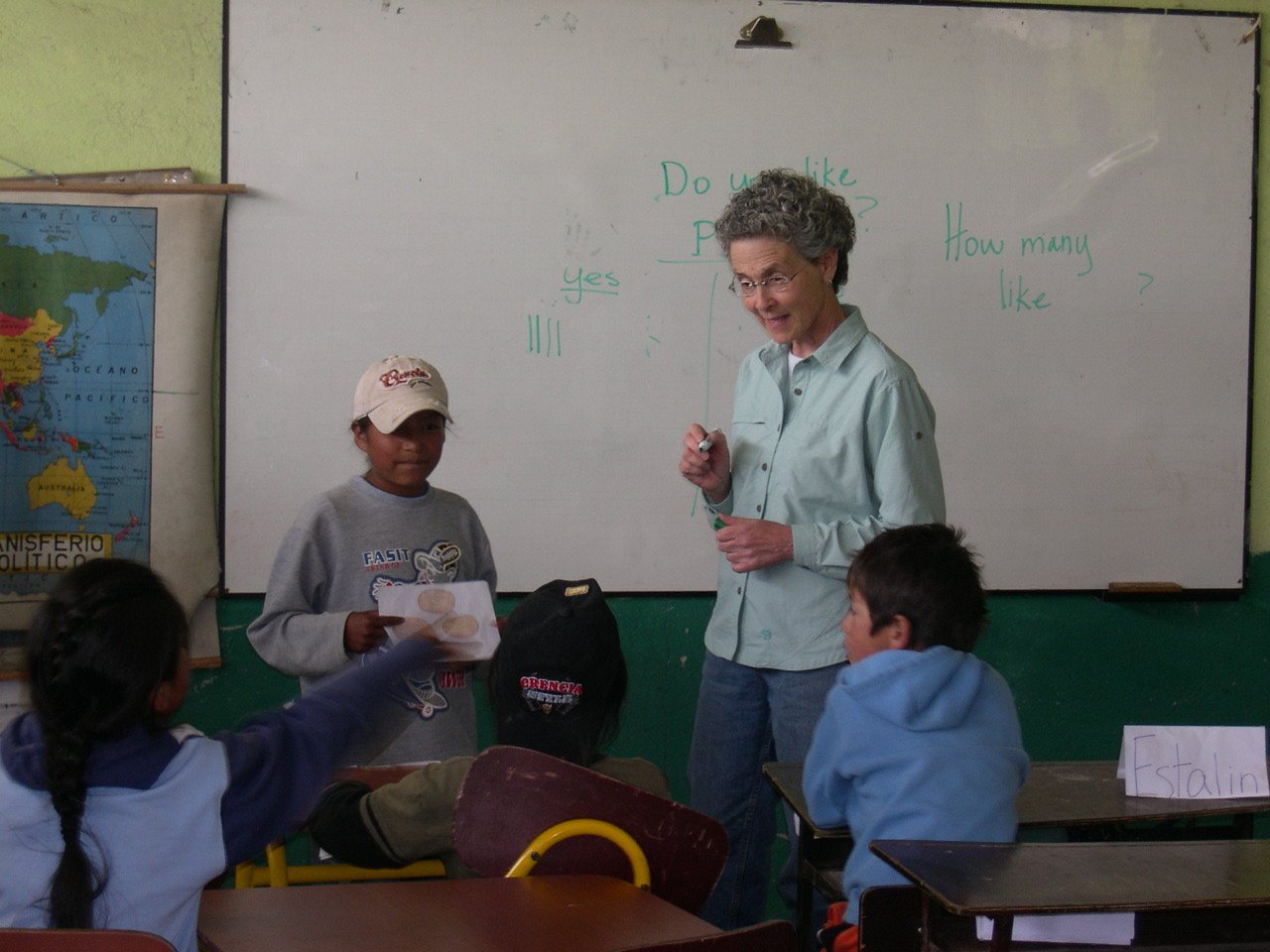
"Do it! It’s challenging but so rewarding and fun and humbling. I’m so happy I ended up opening my mind to the challenges, and I feel I took away so much!"
-- Emma, student
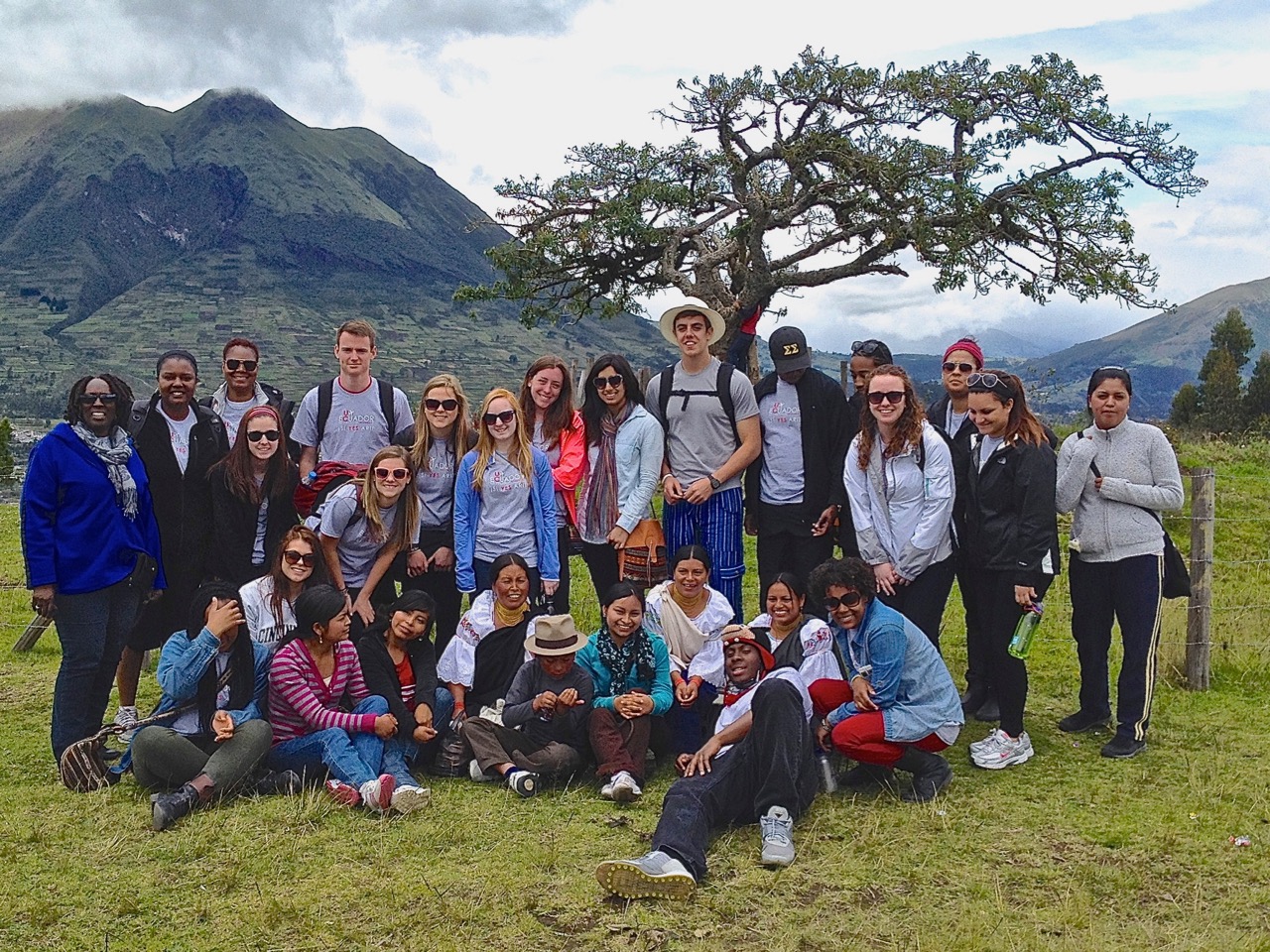
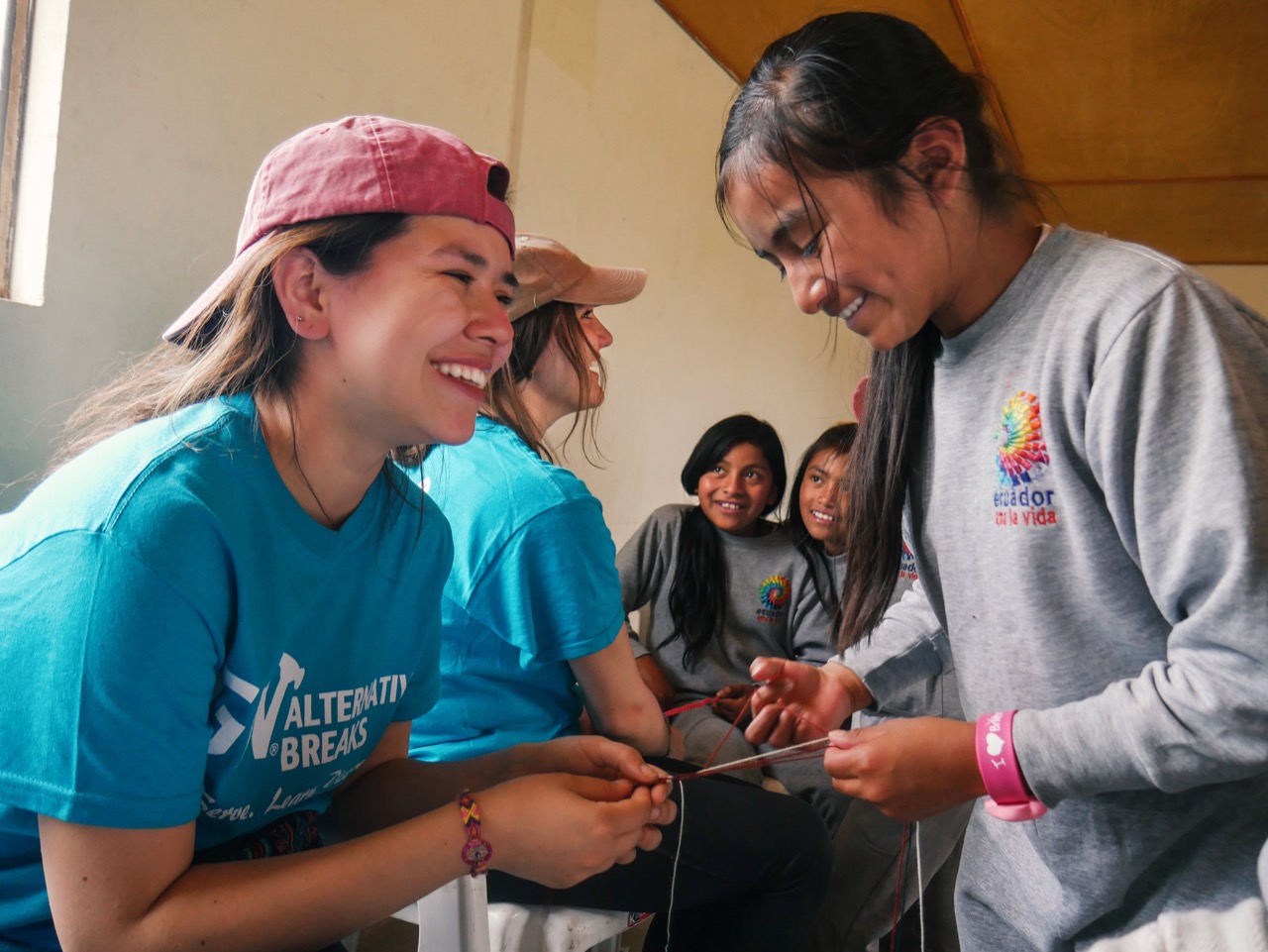
Sample Custom Group Volunteer Programs
 The Traveling School, a study abroad program for high school girls from all over the United States, spends a week each spring in the community of Agualongo. The teachers and students stay with host families and help the citizens with projects such as painting the community center or replacing inadequate drinking water pipes. One year, they were amazed to be welcomed with huge flower arches, a special dinner, music, and dancing. As an experience of learning, cross-cultural friendship, and human connection, this week is amazing. Though the group travels for three and a half months in the Andean countries, their time in Agualongo remains a huge highlight of the journey.
The Traveling School, a study abroad program for high school girls from all over the United States, spends a week each spring in the community of Agualongo. The teachers and students stay with host families and help the citizens with projects such as painting the community center or replacing inadequate drinking water pipes. One year, they were amazed to be welcomed with huge flower arches, a special dinner, music, and dancing. As an experience of learning, cross-cultural friendship, and human connection, this week is amazing. Though the group travels for three and a half months in the Andean countries, their time in Agualongo remains a huge highlight of the journey.
Northeastern University offers an Alternative Spring Break trip, which Tandana organizes with a community in Quichinche. On one such trip, a ceremony featuring a communal lunch, traditional dances, demonstrations of traditional dress, and "ollas encantadas" a local version of piñatas, welcomed the group to the community. During the week, they hauled sand and gravel, dug a trench, carried bricks, and helped community members build a water filtration tank to provide clean drinking water for the village. They also helped at a community-owned native tree nursery, visited both traditional and modern weavers, baked bread with community members, and visited Cuicocha Lake. The group's excitement about their experience has led them to recommend traveling with Tandana to their friends back in Boston.
Technology Services Corps brought a group of students to Ecuador for two-weeks in order to upgrade computer labs in two different communities. The group spent a week living and working at the Ulpiano Navarro School in the community of Quichinche. Work included installation of twenty desktop computers, one document camera, and the Rachel+ software system. Throughout the week, the participants engaged in cultural activities such as the interactive Kichwa museum, salsa lessons, and a visit to the Afro-Ecuadorian community of Juncal. The next week, the group moved into homestays in the community of Tangali. They spent mornings in the local school installing 29 laptops and the Rachel+ system and then enjoyed exploring the community and connecting with their new Ecuadorian families through activities such as bread baking.
 Women Worldwide and Adventures in Rock organized a group of travelers who wanted to give back and then kick back in Mali. In between travels through the country and enjoying the music of the Festival in the Desert, this group worked at the Kori-Maounde primary school. Volunteers helped the villagers and children plant 54 fruit trees, dig a trench, lay a pipe, and create a watering basin in the school garden. They also found time to play frisbee with the kids, teach them "head, shoulders, knees, and toes," and lead them with call-and-response to a water hole to bring water for the trees. You can read a great description of their experience at
Women Worldwide and Adventures in Rock organized a group of travelers who wanted to give back and then kick back in Mali. In between travels through the country and enjoying the music of the Festival in the Desert, this group worked at the Kori-Maounde primary school. Volunteers helped the villagers and children plant 54 fruit trees, dig a trench, lay a pipe, and create a watering basin in the school garden. They also found time to play frisbee with the kids, teach them "head, shoulders, knees, and toes," and lead them with call-and-response to a water hole to bring water for the trees. You can read a great description of their experience at  Craig and Steph's Vacation Blog.
Craig and Steph's Vacation Blog.
A woman from North Carolina recruited thirteen friends to join her for a week of volunteering in two communities just outside of Otavalo, Ecuador. From mornings in Larcacunga trimming baby trees in the local native plant nursery and shoveling rocks and cement at the community center in La Banda to afternoons visiting indigenous artisans and hiking to sacred waterfalls, these women reveled in their opportunities to get to know this new place and make new friends. A highlight was learning to cook llapingachos, carne colorada, and quimbolitos, from our local friend Claudia Fuerez.
The eighth grade class from  Headwaters Academy in Montana spent a week living and working with the rural community of Padre Chupa. They joined local parents in creating a school garden by preparing the soil, building a protective fence, and planting seeds. They went on hikes led by the school children to a nearby waterfall, to visit a sugar cane press, and to a ridge with a stunning view of the steep valley where the community is located. Together, the two groups of students also baked bread, built a campfire to make s'mores, and painted a sign for the school. The week concluded with a trip to the Chachimbiro hot springs where many of the students from Padre Chupa got the chance to go swimming for the first time in their lives.
Headwaters Academy in Montana spent a week living and working with the rural community of Padre Chupa. They joined local parents in creating a school garden by preparing the soil, building a protective fence, and planting seeds. They went on hikes led by the school children to a nearby waterfall, to visit a sugar cane press, and to a ridge with a stunning view of the steep valley where the community is located. Together, the two groups of students also baked bread, built a campfire to make s'mores, and painted a sign for the school. The week concluded with a trip to the Chachimbiro hot springs where many of the students from Padre Chupa got the chance to go swimming for the first time in their lives.
 REACH mentoring and youth development program from Santa Barbara County works with Tandana in Ecuador as a part of their cumulative experience at the end of their program. They stay with host families in a community for two and a half weeks while contributing to community initiatives, such as building a retention wall for a water tank and repairing the community’s water pipes, painting and installing a floor in a new community center, and carving out a new and safer footpath to the nearest bus stop. REACH also provided a generous donation for the community’s dream of enlarging and improving the local sports field. In addition to all of the work, REACH students enjoy adventures such as waterfall and volcano crater hikes, cooking classes of traditional Kichwa cuisine, weaving and salsa dancing classes, and a bonfire party on July 4th, where the students can share their culture with the entire community. It is a full-throttle experience of building new relationships and also strengthening those that have been 3 years in the making through the REACH program.
REACH mentoring and youth development program from Santa Barbara County works with Tandana in Ecuador as a part of their cumulative experience at the end of their program. They stay with host families in a community for two and a half weeks while contributing to community initiatives, such as building a retention wall for a water tank and repairing the community’s water pipes, painting and installing a floor in a new community center, and carving out a new and safer footpath to the nearest bus stop. REACH also provided a generous donation for the community’s dream of enlarging and improving the local sports field. In addition to all of the work, REACH students enjoy adventures such as waterfall and volcano crater hikes, cooking classes of traditional Kichwa cuisine, weaving and salsa dancing classes, and a bonfire party on July 4th, where the students can share their culture with the entire community. It is a full-throttle experience of building new relationships and also strengthening those that have been 3 years in the making through the REACH program.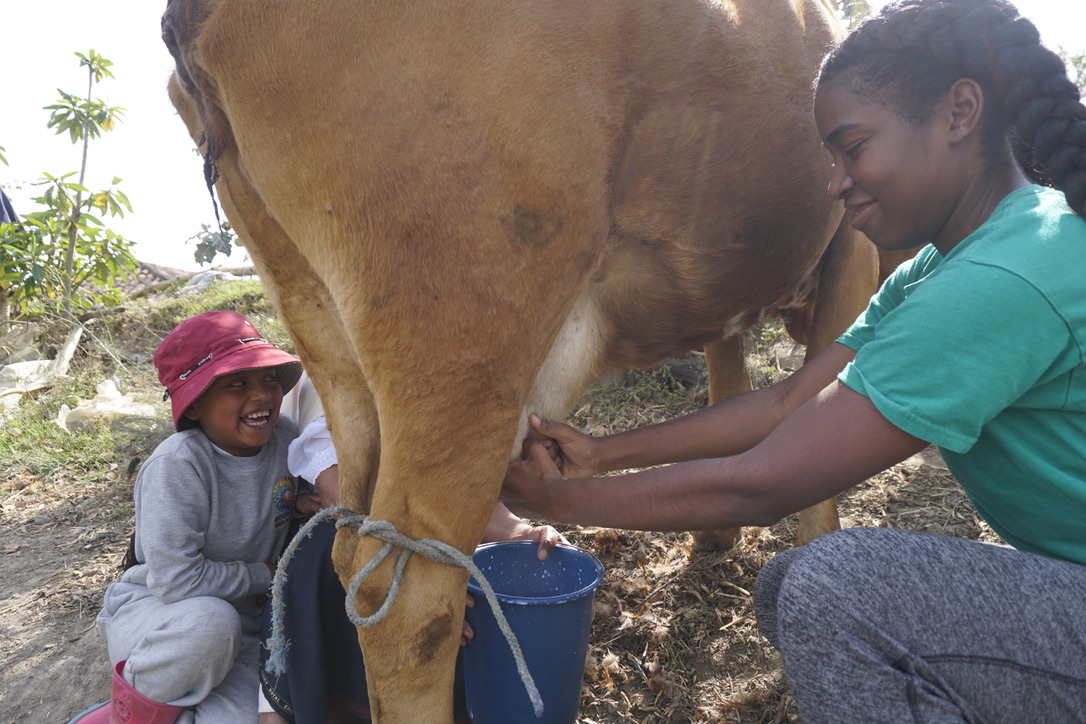
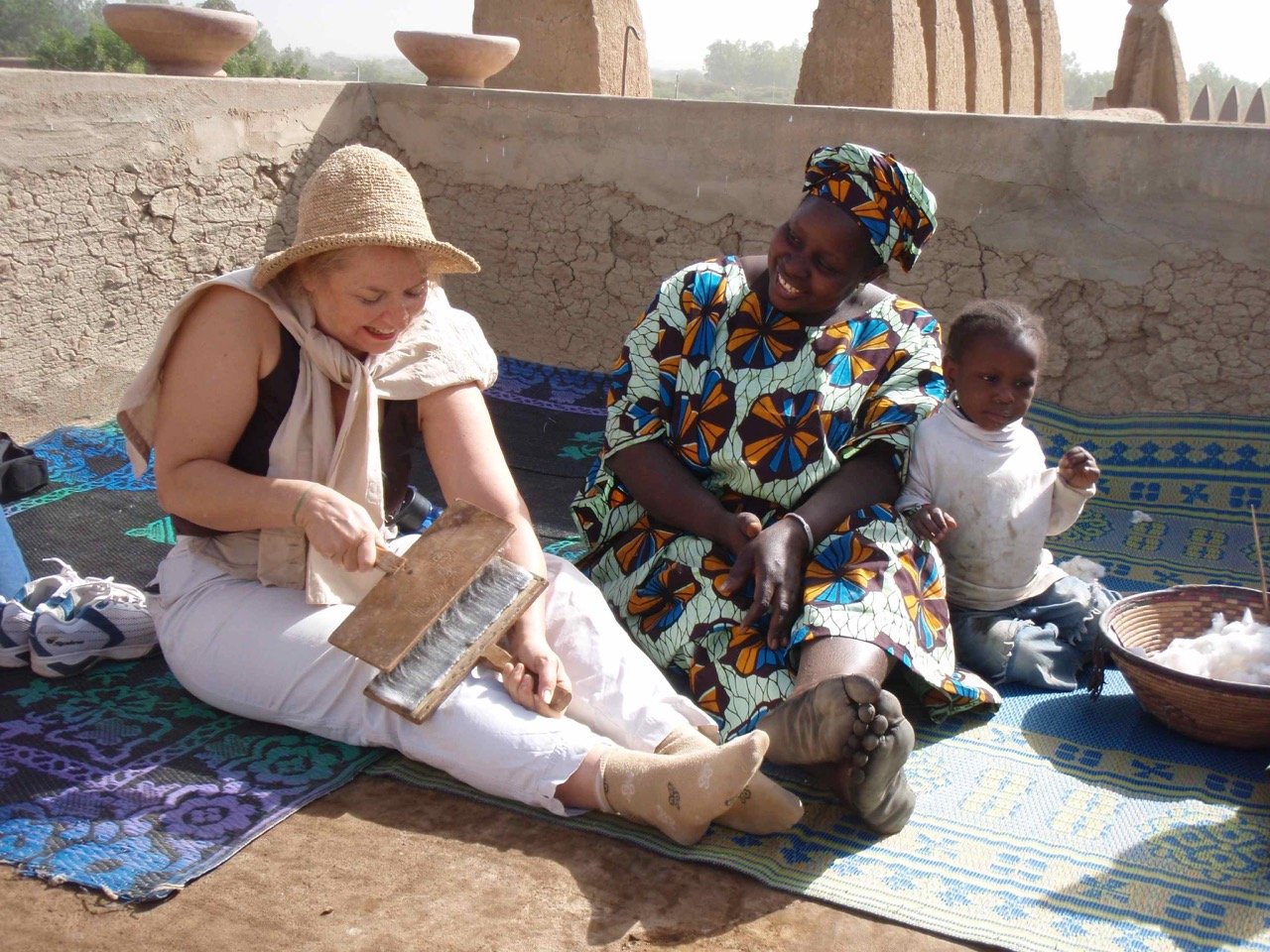
Custom Group Volunteer Program Frequently Asked Questions
Do I need vaccinations to go on this trip?
What are the accommodations like?
There are several options, depending on your budget and the kind of experience you'd like to have. For full cultural immersion, you can stay with host families within the communities where we'll work, or if you'd like to stay together, your group can "camp" in a community center. Sometimes groups prefer to stay in the nearby town of Otavalo, in a cozy hostel or a lodge. We continually evaluate our lodging choices to ensure that they meet the needs of our participants, but our recommendation is to stay in the community if your group is up for it.
Will my electronic devices work in Ecuador?
We'll send you a "welcome" packet a month or so before your departure, which includes a suggested packing list.What kind of clothing, etc. should I pack?
What if I don't speak Spanish?
It's not necessary to speak Spanish in order to do good work and have a good time on this trip. You'll learn the important basics during orientation, and Tandana staff will be able to translate for you.
I've heard about the Zika virus. Should I be concerned for my health?
The Zika virus is carried by mosquitoes that generally live below 1200 meters, but Tandana works at much higher elevations--typically above 2000 meters. So the chances of encountering a Zika-carrying mosquito while with Tandana is quite low. Moreover, the main concern for Zika is the damage it can do to fetuses if the mother contracts the virus; for others, the clinical symptoms are mild. Nevertheless, if you plan to travel in lower elevations before or after your time with us, you might want to take precautions with an insect repellant approved by the EPA.
Who leads the volunteers? Who do I go to if I need help?
All of Tandana's volunteer programs are led by a Group Coordinator that has typically first worked with Tandana as a volunteer or intern (or if not has been recommended by someone we trust and then carefully vetted by us). You can find bios for many of our past Group Coordinators here. Group Coordinators have first-hand knowledge of the region, speak both Spanish and English, have expertise in experiential education and group leadership, hold WFR (Wilderness First Responder) or other certifications that have prepared them to handle emergencies, and are caring and capable individuals. The Group Coordinator is usually assisted by 1 or 2 assistant coordinators, and our permanent local staff is always on hand to help with translation, activities, logistics, and anything else to make sure the volunteers' experience is the best it can possibly be.
What if I can't find the answer to my question on this FAQ page?
Please email your question to us at info [at] tandanafoundation.org, and we'll answer it as quickly as we can.

Scroll down through the story map below to learn about the communities we partner with and see their locations on a map.
